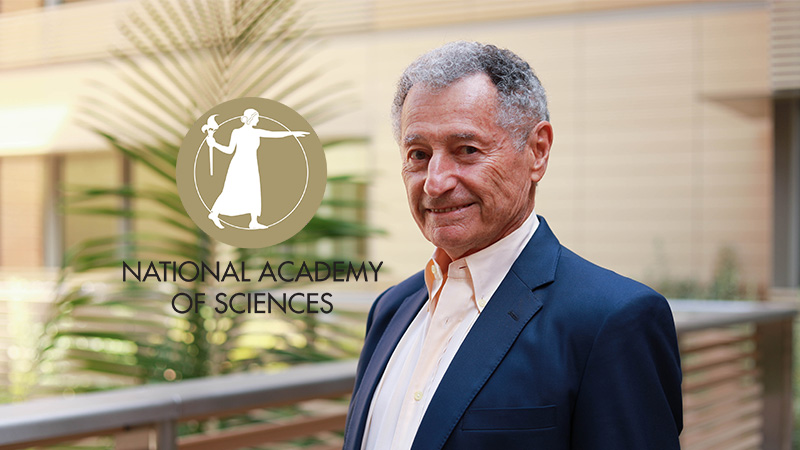
Distinguished professor emeritus Leonard Kleinrock of computer science at the UCLA Samueli School of Engineering has been elected to the National Academy of Sciences.
The academy announced its 2024 class of 120 new members and 24 international members at its annual meeting on April 30 in Washington, D.C. The nonprofit organization recognizes distinguished and continuing achievements in science. Also elected from UCLA was physics and astronomy professor Zvi Bern.
In 1962, as a graduate student at MIT, Kleinrock developed the mathematical theory of packet switching — a foundational technology of the internet that allows computers to exchange information across a network. A year later, he joined UCLA where he continued to refine and test this process. On Oct. 29, 1969, Kleinrock’s team directed the successful transmission of the first message over the Arpanet from a computer in his lab at 3420 Boelter Hall at UCLA, which had been selected as the first Arpanet site, to another computer in Stanford Research Institute — a seminal moment that has been recognized as the birth of the internet.
The election to the academy is Kleinrock’s second major honor this year, following the April 1 announcement of the 2024 IEEE Computer Society Computer Pioneer Award, which honored Kleinrock for his groundbreaking contributions to computer networking.
Kleinrock has received numerous national and international awards, including the 2007 National Medal of Science, the country’s highest award for scientific achievement. He is also an elected member of the National Academy of Engineering, the American Academy of Arts and Sciences, the National Academy of Inventors and an inaugural member of the Internet Hall of Fame.
Still an active faculty member, Kleinrock directs the UCLA Connection Lab, where he continues to direct scholarly work and advise graduate students on computer networks and related topics, including inclusive connectivity. In 2016, he created the Internet Research Initiative at UCLA, which supports undergraduate students in independent research. He also still teaches classes, most recently a graduate course on computer queuing systems theory this past winter quarter.
Plans to commemorate the 55th anniversary of the birth of the internet at UCLA this Oct. 29 are underway.
The National Academy of Sciences was established by an act of Congress signed by Abraham Lincoln in 1863. With this year’s newly elected members, the academy has 2,617 active members and 537 international members. Together with the National Academy of Engineering and the National Academy of Medicine, the three organizations provide science, engineering and health policy advice to the U.S. federal government and other organizations.
